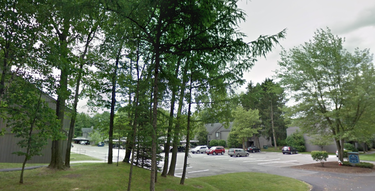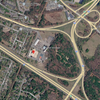Reserves drained: GCSD pays out over $3M in tax refunds
GUILDERLAND — In the wake of Guilderland’s 2019 town-wide property revaluation, the school district has been hard hit as the town’s assessments have been challenged.
School taxes are much higher than town, county, library, or fire-district taxes, so when assessments are reduced, schools feel the pinch.
At their June meeting, Guilderland School Board members passed, without discussion, two measures that reveal some of the damage. Together, the payouts for tax reimbursement total about $3.1 million.
For one, the board voted to take $932,645.02 out of a Tax Certiorari Reserve that had been built up for the purpose of paying back property owners who had been successful in their assessment challenges.
“The reserve now … is essentially gone,” Assistant Superintendent for Business Neil Sanders told The Enterprise this week.
In addition to that, the board agreed to take $430,338.85 from its unrestricted fund balance — for a total of roughly $1.4 million.
“This amount represents the excess amount of tax certiorari claims paid in 2021-22 that were unforeseen and in excess of the original proposed budget amount approved by voters on May 18, 2022,” said the resolution.
District residents passed the $110 million budget with 68 percent of the vote. State aid is to cover about $30 million with the bulk of funds coming from property taxes.
The budget had allowed $300,000 for tax reimbursements.
“So,” Sanders told The Enterprise, “we’re really up around $1.6 million in terms of overall reimbursements.”
Asked about the list of entities receiving the roughly $1.6 million in reimbursements for settled tax challenges, Sanders said the list is largely made up of commercial properties, including a lot of apartment complexes; there are a few residential homeowners getting smaller individual amounts.
Now, with the new lower assessed values on those properties, Sanders noted, “When the tax bills go out, they’re going to be at the lower assessed values that have been determined … which means there’s going to be a shift, most likely in terms of a higher tax rate to offset the loss of property value.”
Before the 2019 revaluation, Guilderland hadn’t revalued its properties town-wide since 2005. Guilderland Supervisor Peter Barber told The Enterprise in 2020, “The goal was ultimately to more fairly and equitably spread the tax burden so residential [property owners] wouldn’t be subsidizing commercial. We did that.”
However, as The Enterprise has documented over the last two years, many commercial property owners have since been able to gain lower assessments, shifting some of the burden back to residential property owners.
The summer following its revaluation, Guilderland faced 30-odd lawsuits from property owners looking to drive down the value of nearly 80 properties by a cumulative $378 million. The town has since settled a great many of the cases.
The second resolution the Guilderland School Board made at its June 14 meeting was a bond resolution for $1,521,489.66 for a tax refund payment “pursuant to judicial proceedings.”
Justice Margaret T. Walsh with the State Supreme Court in Albany County heard the case where the owners of several apartment complexes in Guilderland — Rustic Village LLC, R.P. Associates of Albany, L.P., Woodlake Associates, L.P., and MM Family Partnership II, L.P — challenged the town of Guilderland, its assessor, and its board of assessment review.
“The court determined that they were entitled to a refund totaling $1.5 million,” Sanders told The Enterprise.
Since the district had already transferred money from its rainy-day account — a fund that during the budgeting process the board had wanted to build up since it was the lowest of the Suburban Council schools — and since it had already exhausted its Tax Certiorari Reserve “taking care of the other ones,” Sanders said, “we had to find another mechanism because we did not have this amount of cash put aside for this purpose.”
As Guilderland was drafting its budget in January, Sanders had told the school board, “We’re in a financially turbulent time right now.”
He displayed a bar chart, showing Guilderland’s fund balance as a percentage of 2020 expenses compared to each of the other Suburban Council schools. Guilderland had the lowest percentage at 9.92; the highest percentage was over 29 percent.
“We have less tools,” said Sanders, to work through a financial crisis.
Sanders then made the case for maintaining an adequate level of fund balance, saying that it smooths out year-to-year fluctuations, allowing a “strong, robust education over time.”
He also said that an adequate fund balance maintains a strong tax base, leading to “a strong vibrant community,” which is good for real-estate values.
He said that keeping funds in reserve is not taking money away from taxpayers but rather avoiding cycles of budget and staff reductions, class-size increases, and limited options for extracurricular activities.
With inflation now over 4 percent, Sanders said in January, the district still has to come under the 2-percent state-set levy limit.
Now, the annual inflation rate for the United States is 9.1 percent for the 12 months that ended June 2022, according to the United States Department of Labor, which is the largest annual increase since November 1981.
This week, Sanders said of paying the legally required tax reimbursements, “So another way to do this is, unfortunately, to borrow, but we really don’t have any other recourse at this point because we don’t have the cash on hand to do that. So we’re borrowing in order to pay that corporate entity the refund.”
Meanwhile, several other entities in town — including the Northeastern Industrial Park, Wolanin Companies, and 20 Mall as well as Crossgates Mall and Macy’s — have filed court papers seeking substantial reductions.
“It’s going to be very difficult to build up our reserves while we’re still dealing with some of these refunds that are still coming our way,” said Sanders. “The borrowing allows us at least an opportunity to be able to do that over time, which is what we need to do at this point since we’ve exhausted the resources we had set aside for this purpose.”
He said he hoped the bulk of the claims from the 2019 revaluation had been settled. Sanders acknowledged that it is hard to plan for the refunds.
“It’s very hard, as you can imagine, knowing how these things are going to turn out with the individual assessments …. A property owner thinks the value is one number and the town’s appraiser has come up with a different number,” he said. “So we never know for sure how it’s going to come out and what the difference is going to be until it’s actually resolved.
“If refunds are issued, we have an obligation to pay.”
One of the priorities in the next few years, Sanders said, will be “to try to make sure that we can rebuild those fund balances and reserves.”



